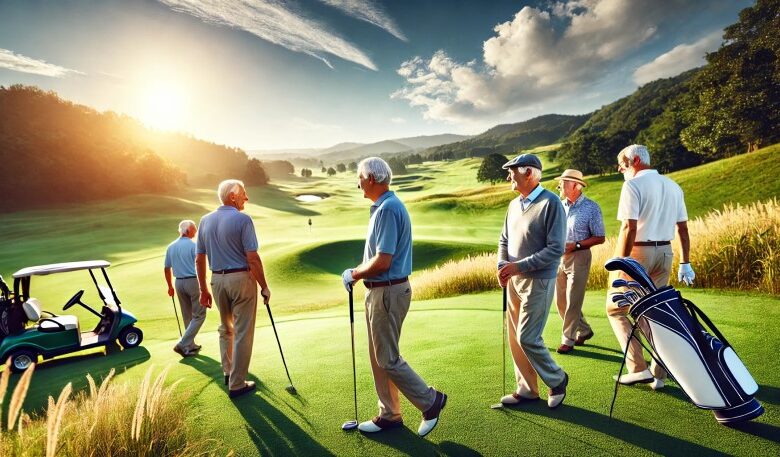Why Golf is the Perfect Sport for Longevity and Active Aging

The continued activity of older adults functions as a critical element for sustaining their physical mobility as well as their body strength and mental state. Golf provides a suitable activity for senior citizens since it allows continuous movement without joint-stressful impacts. Walking the course along with social interaction and technique improvement leads to long-term health advantages. The proper choice of golf shoes provides stability and comfort which enables players to play golf without experiencing discomfort.
Physical Benefits of Playing Golf
Movement of the body helps decrease stiffness while improving heart health. The combination of walking with balance and coordination during golf helps improve your entire fitness level beyond stationary exercise routines.
Promoting Joint Flexibility and Mobility
The movements required in golf include repeated swinging, weight shifting and rotational actions which help improve flexibility. Keeping the muscles active through specific movement functions helps avoid muscle stiffness while improving posture together with better coordination between muscles.
Supporting Heart Health
The continuous movement during a round raises the heart rate to improve circulation while developing endurance. Moderate exercise leads to good blood pressure control and lower chances of cardiovascular problems.
Enhancing Mental Well-Being
The ability to stay mentally alert serves as a fundamental factor for preserving independence among individuals. Mental resilience develops through strategic thinking and focus and concentration which maintain brain alertness.
Improving Concentration and Strategic Thinking
Course layouts have to be evaluated, clubs need to be selected, and all of it needs to be adjusted in the wind. Participating in these decision making processes will strengthen the cognitive function and will allow players to remain mentally agile.
Reducing Stress and Boosting Mood
The natural stress relief gives players the ability to unwind and recharge in an outdoor environment. Fresh air, open spaces and greenery help in relaxation and lower the levels of anxiety while promoting overall well being.
The Social Aspect of Golf
Relationship building and maintenance of connections are important platforms for emotional health. Playing with the same partners regularly builds a sense of community and lowers the feeling of isolation.
Strengthening Friendships and Social Networks
Structured opportunities toward meaningful interactions are available through golf. Players are getting united through weekly games, tournaments, and casual rounds and staying connected with their social circle.
Encouraging Multi-Generational Interaction
Golf is unlike physically demanding sports and it is open to players of all ages. The relationships between families can be strengthened by playing together with older adults and passing down skills and experience to younger family members.
Preventing Injuries with Proper Equipment
The equipment choices for enjoying the game without discomfort are thoughtful. Supportive footwear, ergonomic club designs as well as well fitted gloves minimise stress and improve comfort.
Choosing Footwear for Stability
Standing with a solid stance improves balance, so that slips or missteps are not made on uneven terrain. Cushioned golf shoes have good traction and protect the knees and ankles on the course.
Selecting Clubs That Reduce Strain
Shafts made from lightweight graphite decrease the impact to the wrist and shoulder so each swing is smooth and less fatiguing. Playing with properly fitted clubs is comfortable and avoids extra strain on the body.
Golf as a Lifestyle for Healthy Aging
Not only is golf good for exercising the body and mind, the game itself keeps you active in some capacity for hours after you leave the course. Keeping up in a structured, enjoyable activity strengthens social bonds and provides a reason for maintaining long term wellness.



